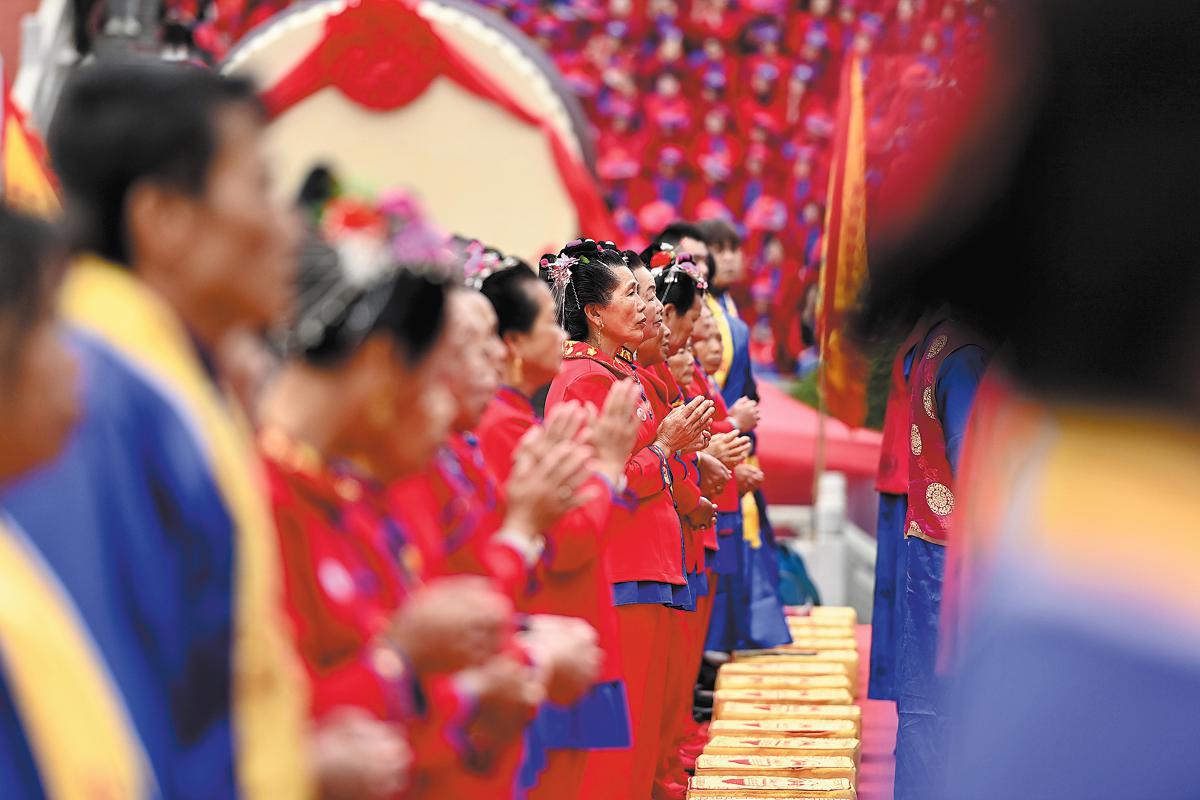Devotion to Mazu stretches from Fujian to Taiwan
Shared culture sees followers of Song Dynasty sea goddess remain faithful across the waves


All Mazu temples in Taiwan have their roots on the mainland, particularly originating from Meizhou Island. The Mazu statues worshipped in various temples across Taiwan were brought over by people from Fujian, Wu said.
Reflecting on his experiences taking Taiwan students to visit Mazu temples on the mainland, Wu said, "I was deeply moved because Mazu is a shared sea goddess among us Chinese, connecting people on both sides of the Strait."
He said that for political reasons, the Democratic Progressive Party authorities in Taiwan are reluctant to promote exchanges involving Mazu worship between both sides of the Strait. Instead, they attempt to create the misconception that popular deities like Mazu and Guan Gong are indigenous to Taiwan so as to sever the historical ties between the two sides.
"However, this won't work because when people hear about Guan Gong, they think of the Three Kingdoms (220-280). With Mazu, such a widespread belief, it's impossible to make it just local to Taiwan," he said.
Similarly, the recent domestically produced animated blockbuster Ne Zha 2, which draws from ancient Chinese mythology, has sparked discussions and attracted numerous Taiwan residents to the mainland to watch the movie, fostering cultural exchanges between people on both sides of the Strait.
Hsiao Hsu-tsen, executive director of the Ma Ying-jeou Culture and Education Foundation, led a delegation of nearly 40 Taiwan students to watch the film at a Beijing cinema during a five-day visit to the mainland in February.
"Family love is what attracts me the most to this movie because I have a very good relationship with my own family, so watching it made me very sad," said Ko Yi-ting, a student who was moved to tears when Nezha's mother dies in the movie, hugging him in her final moments.
Chuang Po-chung, a professor from the Chinese Culture University in Taiwan, said that on the island, Nezha is a symbolic figure in traditional religious activities, so it's a mythical character that people in Taiwan are very familiar with.
In Fujian and Taiwan, the mythical figure Nezha is a beloved and adorable child deity, revered as a guardian, especially known for protecting children. Nezha also often appears in Mazu parades.
























